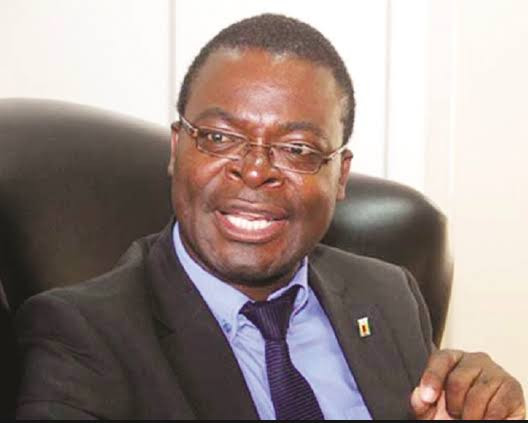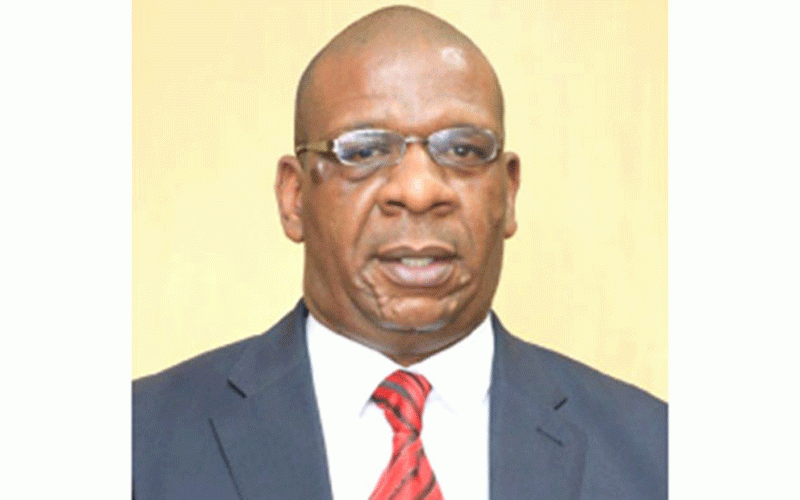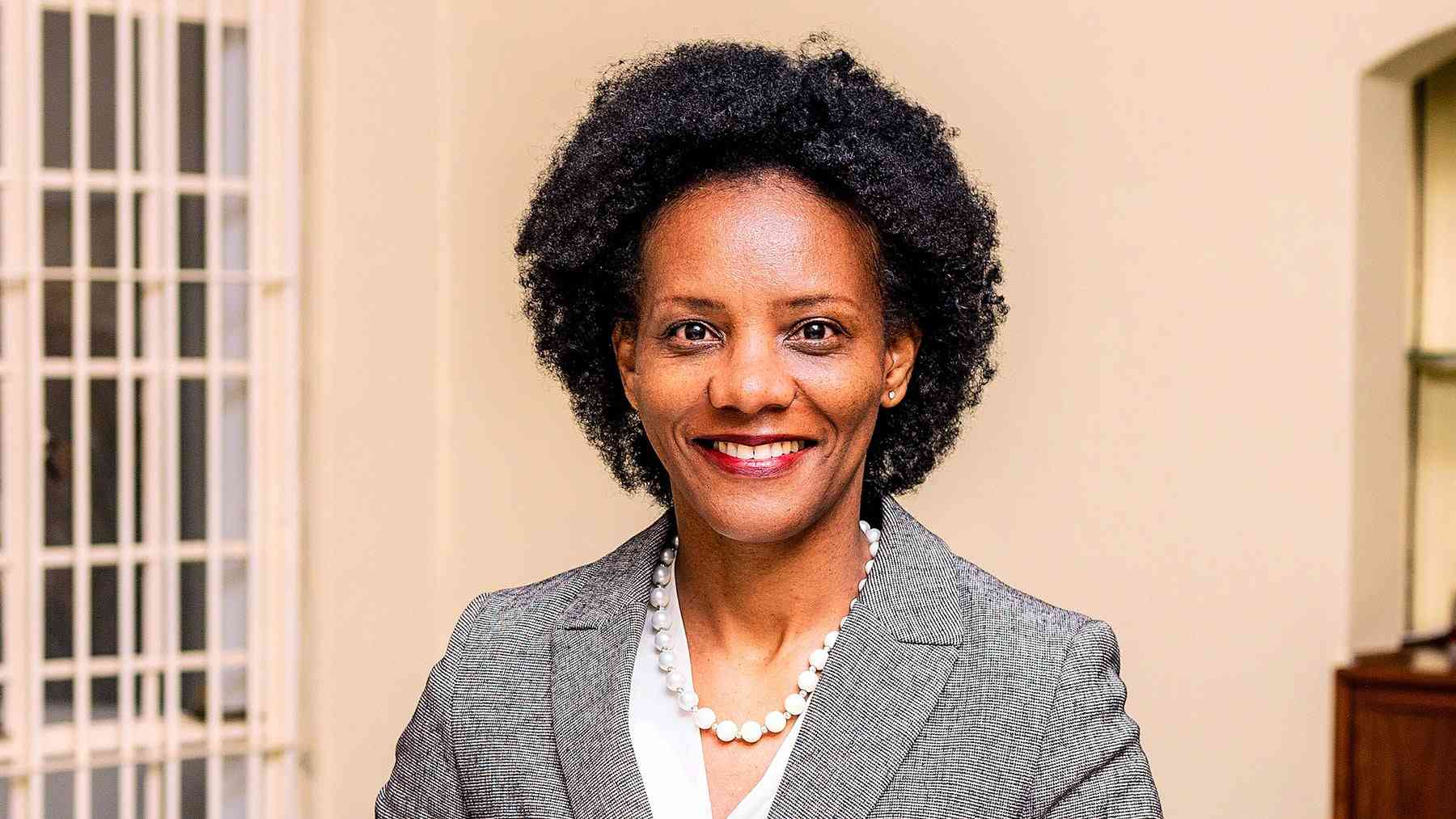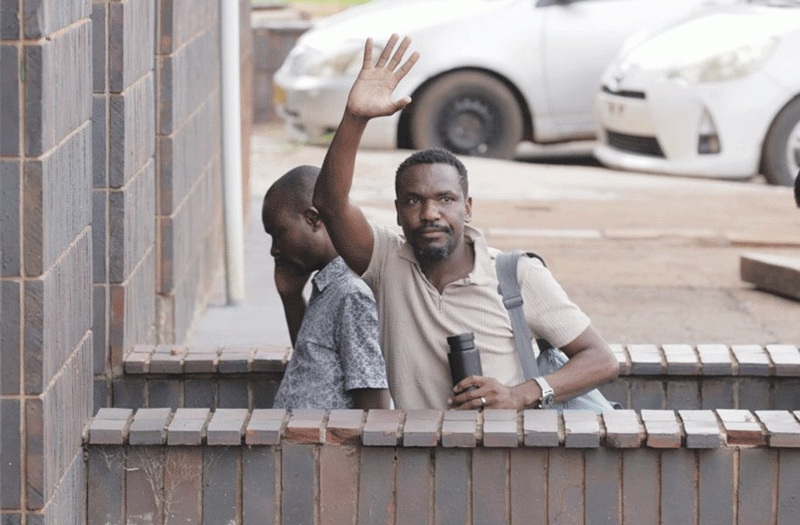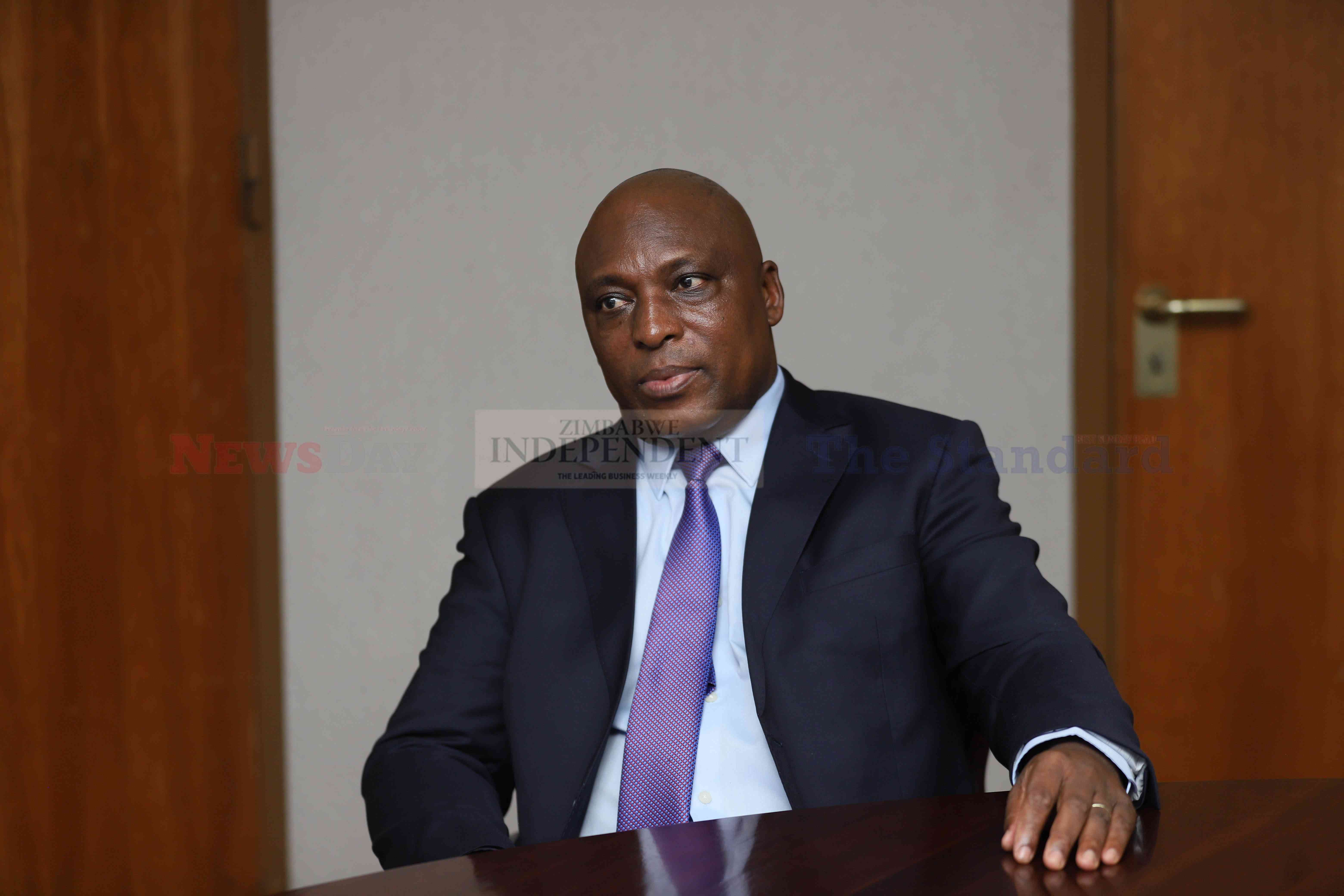
RESERVE Bank of Zimbabwe (RBZ) Governor John Mushayavanhu (JM) last week presented the much-awaited monetary policy statement (MPS), and introduced a new currency, the Zimbabwe Gold (ZiG). The MPS recalibrated the bank policy rate from 130% to 20% per annum, amongst several other policy pronouncements. The Zimbabwe Independent Editor, Faith Zaba (FZ) spoke to Mushayavanhu on Tuesday on a wide-range of issues, including the new structured currency, money supply and strategies to instil trust and confidence in ZiG. Below are excerpts of the interview:
FZ: Who is John Mushayavanhu, where were you born? Please give us a brief history about yourself up to the time you joined the banking sector?JM: I was born in Gutu and I have been a banker all over my life. I spent time at Standard Chartered Bank and left Standard Chartered Bank at a very senior level and started FBC in 1997. I have been at FBC since then until His Excellency (President Emmerson Mnangagwa) decided to appoint me governor of the central bank. That is my life. It is a life of banking.
FZ: So what were your major highlights during your tenure as CEO of FBC?
JM: Well, I think the performance of FBC speaks for itself. I started FBC as a one-branch bank. In fact, the branch was in Zvishavane, not even in Harare, and grew it to one of the largest banks in the country. And I think my signature project was just before I left FBC. I think you are aware that on the June 8 we signed an agreement for FBC to acquire Standard Chartered Zimbabwe. So in a nutshell, those are the highlights of my career.
FZ: Now that you were appointed governor of the RBZ in December, how did you feel and where were you when you got the news and what was your reaction?
JM: Well, the appointment did not come as a surprise actually. It is something I knew was coming. But to cut a long story short, I received a phone call on 11 September, at 9:11am. I was told to come to the State House.
I enquired what it was about and I was told to just come. I said, did I need to prepare anything? They said no, do not prepare anything. I knew that the day had come. So, I got there and it was a very short meeting with HE (His Excellency).
He said he had decided to appoint me governor of the central bank and that I should now start handing over. Although my actual date of appointment was going to come later, he wanted me to know. He said I should not tell anyone except my chairman at FBC (Herbert Nkala). So that was in September 2023. As you know, the announcement was only made, I think on the 8th of December. But all along I knew and I was already preparing to move to the central bank. Of course, I then told my chairman and he proposed a toast and the rest is history.
- Mr President, you missed the opportunity to be the veritable voice of conscience
- ED to commission new-look border post
- Zanu PF ready for congress
- EU slams Zim over delayed reforms
Keep Reading
FZ: Last week, you literally walked into a raging storm. Inflation is rampaging, interest rates are high, money supply is high and the currency is under pressure. Your first, MPS on Friday introduced radical measures, with the introduction of a new currency. Now governor, so how was that experience? It must have been tough, especially after seeing the reactions that came after the announcement.
JM: Well, we have been working on that MPS since January. You thought I was not in the central bank but I was already working in the central bank, although the official announcement for me to assume duty only came on the 28th of March. But from January, after Christmas, I was already working with the outgoing governor to craft the monetary policy statement.
Obviously all the factors that you have mentioned are the factors that made us decide on taking some of these radical measures. But radical measures to protect the economy and not to inconvenience anyone. So yes, we realised that the country was going through what you can term hyperinflation. We also realised that there was exchange rate instability. We also realised that the demand for the Zimbabwe dollar was going down and we had to put in place measures to address all those issues. And if you read the monetary policy statement that is what we focused on and all those measures that we implemented are meant to achieve exactly that.
FZ: So what was your reaction after attacks because you are known to be a very quiet and reserved person?
JM: Well, one thing you must know is that when you get into a position like governor of the central bank, you have to develop a thick skin. There will be people who agree with you, there will be people who disagree with you, there will be people who don't know - one day they agree with you, one day they do not agree with you. But all you should concentrate on is to stick to your mandate. My mandate is to ensure that there is price and exchange rate stability in the market. I am very convinced that the measures that I announced are going to achieve that.
I think I can quote from His Excellency, the President, who says we do not run this country on the basis of social media.
So social media can say all they want, but as long as we are convinced that we are doing the right thing, we will continue on that path.
FZ: Why the name ZiG? There was a lot of debate on social media around that.
JM: It is very simple. Countries name their currency based on what they consider most precious in their country. I will give you an example, do you know what pula means? In Tswana, pula means rain. Botswana is more like a desert country, so to them rain is very valuable. In Zimbabwe, gold is one of our most valuable resources. So that is where we derived the name from, Zimbabwe Gold and we said our currency was going to be anchored by, among other things, gold and other precious minerals, including foreign exchange balances.
FZ: New ZiG notes and coins will start circulating on April 30. Why April 30, because people had assumed that they would start circulating on the Monday after the MPS.
JM: Yes, when you say implementation date, you are talking of the date when the real cash is going to be in the market. But the actual implementation date was the 5th of April. I think if you have a bank account, you would have received a message from a bank right now to say your balance has been converted and this is your new balance. Some banks are still fine-tuning, but the majority of the banks are ready to transact as we speak.
As regards the cash, you have to know that when you are introducing a currency, especially a new currency, there has to be an educational campaign. You cannot just go and give someone in Mberengwa a ZIG note and say this is the new money because you know what can happen. Unscrupulous people can print a note on bond paper and go and say this is the new ZIG to someone who is not aware. And that person can part with a valuable commodity like a cow or anything. So we decided that as RBZ, we are going to have an information blitz where we will go to every corner of the country, educate them on the features of the currency so that when we then roll out the currency, it will be a currency that everyone fully understands and a currency that everyone is ready and willing to accept.
FZ: So how much is going to be released on the day?
JM: We are going to release enough money to satisfy the transactional needs of the country. People will not be short of money, but they will also not be too much of it.
FZ: The delays in transacting on banking and other platforms have caused a lot of confusion in the market. It has disadvantaged a lot of people, especially the poor who do not have US dollars. Do you have a set, let us say, a cut-off date when we should be able to start swiping and using other platforms to transact?
JM: I am quite confident that by tomorrow (Wednesday) all banks should be ready for people to start doing all the activities that they have always done on their bank accounts.
FZ: What strategies have you put in place to instil confidence and trust in the new currency?
JM: Yes, as I said in my monetary policy presentation, the proof of the pudding is in the eating. ZiG is going to be fully convertible. So if you have a genuine foreign currency payment to make, be it school fees that you need to pay to a university, be it services that you want to pay for, be it a genuine import, as long as it is legitimate, you will be able to go to your bank and they will be able to convert it. That way, people will have confidence in that currency. Confidence cannot be legislated.
It has to be earned.
The way we are going to earn it is that. Secondly, you will be aware that on Thursday, the 4th of April, His Excellency the President came to the central bank. We opened the vaults for him to see what is in the vaults in the presence of the media. It has never ever happened in the history of the central bank that we have done that.
The reason we did that was that when we tell you that we have got 2,25 tonnes of gold, you will believe that it is there. Likewise, when we tell you that we have got US$100 million worth of nostro balances to back our currency, you will believe that. So, with those measures that we have put in place, if there is still any doubt in Thomases, then the only way they can prove that this currency is going to preserve its value is by attempting what I said. Go to your bank with a genuine foreign currency invoice and it will be honoured.
FZ: But there has been a lot of debate around the reserves, with a lot of economists, and even bankers, saying that it is not adequate to anchor ZiG.
JM: Well, I do not know where they are getting that from. As at the date of conversion, we had ZW$2,6 trillion-worth of reserve money. When you convert that at the closing exchange rates on Friday, it comes to just over US$80 million. And in nostro balances alone, we have US$100 million. So basically, if we wanted, we could buy all the ZiG in this market. And then the next day we say, you must pay for everything in ZiG. Let us see where you are going to get it from. So, why would they say that reserves are not adequate? Then, over and above that, and here I am just talking about the cash that we have.
Then we have two and a half tonnes of gold. Which means, if we run out of that cash, but I do not see how we will run out of that cash when in fact we have more than enough. You add the cash, US$100 million, plus the value of the gold that we carry of US$185 million.
The total is US$285 million, plus the total money in circulation of US$80 million. We are three times covered, in fact more than three times covered.
So, I do not understand when people say the reserves are not adequate. What will we be covering beyond what is already there that is supposed to be covered?
FZ: So, I think the argument was in relation to the import cover. I want to quote one of the economists, who has said that if you look at in 2023, total imports were around US$8,5 billion, implying average monthly imports of about US$710 million. This means that the country could require import cover of up to US$4,3 billion to adequately anchor and sustain ZiG.
JM: Yes, I thought I answered that economist and even challenged his thinking. Because Zimbabwe is 80% dollarised and then we are saying of the 20% that was not in US dollars, we can actually make it all US dollars overnight if we wanted because we have got more than enough cover. So, there is 100% cover. We have 100% forex in this country. So, if you are going to import anything, the first thing that has to happen is that you must go to your bank, you must have that balance in your account. All the deposits in this country have been covered. They can be converted.
In fact, 80% has already been converted in US dollars, the other 20% can easily be converted to US dollars based on the US$100 million reserves that we have. So, if you cannot import, it is not because there is no forex in the country. It is because you do not have the balance in your bank to import. So, I do not understand the argument.
FZ: They are saying we should have at least six months import cover.
JM: But we have all the money that you can use to import, and it is in forex.
So, in other words, if Zimbabweans thought they do not want to buy anything locally, they just want to use US dollars to buy all their requirements from South Africa, you can use that until you run out of money in your account. The forex is there. So, what is the problem?
FZ: Did you consult with business and industry?
JM: Before coming up with this monetary policy statement, we talked to CZI (Confederation of Zimbabwe Industries) . They gave us a paper.
We borrowed heavily from that paper. We talked to Chamber of Mines, they gave us ideas. We borrowed heavily from those ideas. We talked to civil society. We talked to opinion leaders in this market. Not only that, we had a specialist, seconded from the World Bank, who came and actually had sessions with us on structured currency.
The definition of structured currency that is included in the monetary policy statement came from him. So, there was wide consultation. The banks, we had sessions with them to say to them what is the problem.
All those things that I listed in the monetary policy statement as being things that needed to be addressed came from those consultations.
FZ: Before your monetary policy, social media was on fire. People expressed fears around whether our deposits are safe in the banks. Would you say, our banking system is healthy?
JM: Our banking sector is safe and sound. That is why you find that in the monetary policy statement, I devoted just three lines to banking sector stability. And all I said was, the banking sector is sound, solid and stable. Because that is what it is. We have not seen a bank being put under curatorship for as long as I can remember.
So, I do not know why people should be concerned that their money may not be safe in the banks. I know that there was speculation that I, as the new governor, was going to order that all FCA (foreign currency accounts) balances be converted into Zimbabwe dollars. I would never do anything like that.
Why should we be taking people's money and converting it? We are in a multi-currency environment. You are allowed to have an FCA account and you are allowed to have a ZiG account and you can transact with those accounts as you wish.
FZ: On issue of savings account losing money, instead of earning interest. What are you going to do to try and address this issue so as to encourage people to bank money in formal banking channels?
JM: We have done three things. First of all, we have made ZiG a stable currency. One of the reasons why people were not saving is that if you put your Zimbabwe dollars into an account, even if you were going to get interest of 20% per annum, when inflation is three times that, you would still be losing money.
When the exchange rate is moving against you, you would still be losing money.
So stabilising ZiG as a currency is the first step. The second step, we have set minimum deposit interest rates for FCA deposits, savings and fixed, and for ZiG deposits, savings and fixed.
Third, we also said when your bank balance reduces to US$100 or its equivalent in ZiG, the bank must stop charging you service fees, so that at least you maintain that balance. I am sure you are aware of situations where you would leave US$100 in your account, go for a six-month sabbatical, you come back, you find you now owe the bank US$100, and you say, what happened to my US$100, and why is it that I now owe you? We have addressed all that in the monetary policy statement.
FZ: In your view, do you think we need to address the social issues? Here I am talking about people losing their money, which has happened in the past?
JM: Well, this is what we have done. By giving you a stable ZiG, we are saying, gone are the days when you are going to lose your money again. Your money will be safe, your money will grow, your money will be convertible.
FZ: There is the issue of a small group of people manipulating the exchange rates.
JM: What I can tell you is that the days of illegal money changers are numbered. Why? Because ZiG is fully convertible. If you have a genuine need for forex. Let us say you have an invoice to pay in forex, you go to your bank and that forex will be available to you and they will debit your ZiG account if you have the money in the account.
The only people who are likely to go to the parallel market are people, who are buying ZiG for illegal purposes, who are buying US dollars for illegal purposes.
But if you have a legal genuine need, there is absolutely no reason why you should go to the parallel market.
The exchange rate determination, going forward under ZiG, is going to be market determined. Just like we have done since January.
But you will find that because there will be a demand for ZiG, ZiG might actually strengthen instead of going the other way.
I am sure you have seen what we put in the monetary policy statement. Come next QPD (quarterly paid dates) in June, 50% of the QPD dues are going to be paid in ZiG.
There is only US$80 million worth of ZiG in circulation in this market, 50% of QPDs are way in excess of US$80 million. There is going to be a huge demand for ZiG.
And everyone I have talked to, I have been saying, if I were you, I would start accumulating ZiG now. Because you might find that by the time we get to June, it will be so expensive that you will be losing out.
FZ: And the forex auction floor in the future?
JM: The auction flow is dead. We are not going to be doing auctions anymore. What the central bank is going to do is that, of the 25% surrender requirements that we are going to collect from exporters, 50% of that money will be put on the market immediately for banks to buy and sell to their customers.
And then the other 50% will be bought by Treasury, partly for their needs, and also partly to increase their reserves at the central bank.
FZ: How does the central bank plan to deal with quasi-fiscal activities that have impacted the economy in the past?
JM: All quasi-fiscal obligations (QFOs) were transferred to Treasury. And I think I did say, going forward, I am going to be doing my job as governor of the central bank. I have no intention of doing (Finance permanent) secretary (George) Guvamatanga's job. Neither has he any intention of doing my job. So, that is the end of it. There are not going to be any quasi-fiscal operations.
FZ: You said “over my dead body”!
JM: Yes.
FZ: In past, there was always pressure from government.
JM: The central bank, for your information, is an independent body. Read the Reserve Bank Act, and it is clearly spelled out there. If we are going to do QFOs, it will be because we want to do it, not because someone has forced us to do it. But I have said we are not going to do it. So, that is the end of the story.
FZ: Now, I want us to talk about money supply issues. How will the central bank manage money supply movements to prevent exchange rate depreciation? What assurance is there that there will be a break from the past?
JM: Yes. What we have said in the monetary policy statement is that any increase in money supply will have to be matched by an increase in reserves. In other words, for us to introduce more money in the market, it will be after we have created reserves to cover it. And that is very clear, and that is the path that we are going to walk.
First things first, you must have the reserves before you create liquidity in the market. And if you read the definition of a structured currency in the monetary policy statement, it is saying exactly that. Central banks, who are using a structured currency, can only print money provided and that money is fully covered by reserves.
FZ: So, what measures have you considered to bolster the gold reserves?
JM: First of all, you are aware that the royalties, which mining companies are paying, are now being paid in kind. If you are mining gold, give us gold.
If you are mining platinum, give us platinum. If you are mining diamonds, give us diamonds. But we obviously cannot keep minerals like platinum and even diamonds because of the fluctuation in the prices. So, as soon as we get those, we sell and we convert into gold or cash. So as we receive more royalties, our reserves will keep going up. That is number one.
Number two I did say that when we buy money for export, you surrender 50%, which goes into the market, half of the other 50% goes to government to service their external obligations and the other half goes to the Reserve Bank to boost their reserves.
FZ: Any last words for Zimbabweans?
JM: All I can say to Zimbabweans is that ZiG is the future, ZiG is a stable currency. If you do not get ZiG now, you will be looking for it as early as June this year. Everyone will be hunting for it.
FZ: On allegations that you are conflicted as a shareholder of FBC Holdings and not eligible to occupy the post of governor, what is your comment?
JM: Well, the position is that FBC is a listed company. The share register of FBC is a public document and it is registered in Zimbabwe and any company that is registered in Zimbabwe, the records are at the Company Registry. If you go there and find my name, it's fine. Does that answer you.

